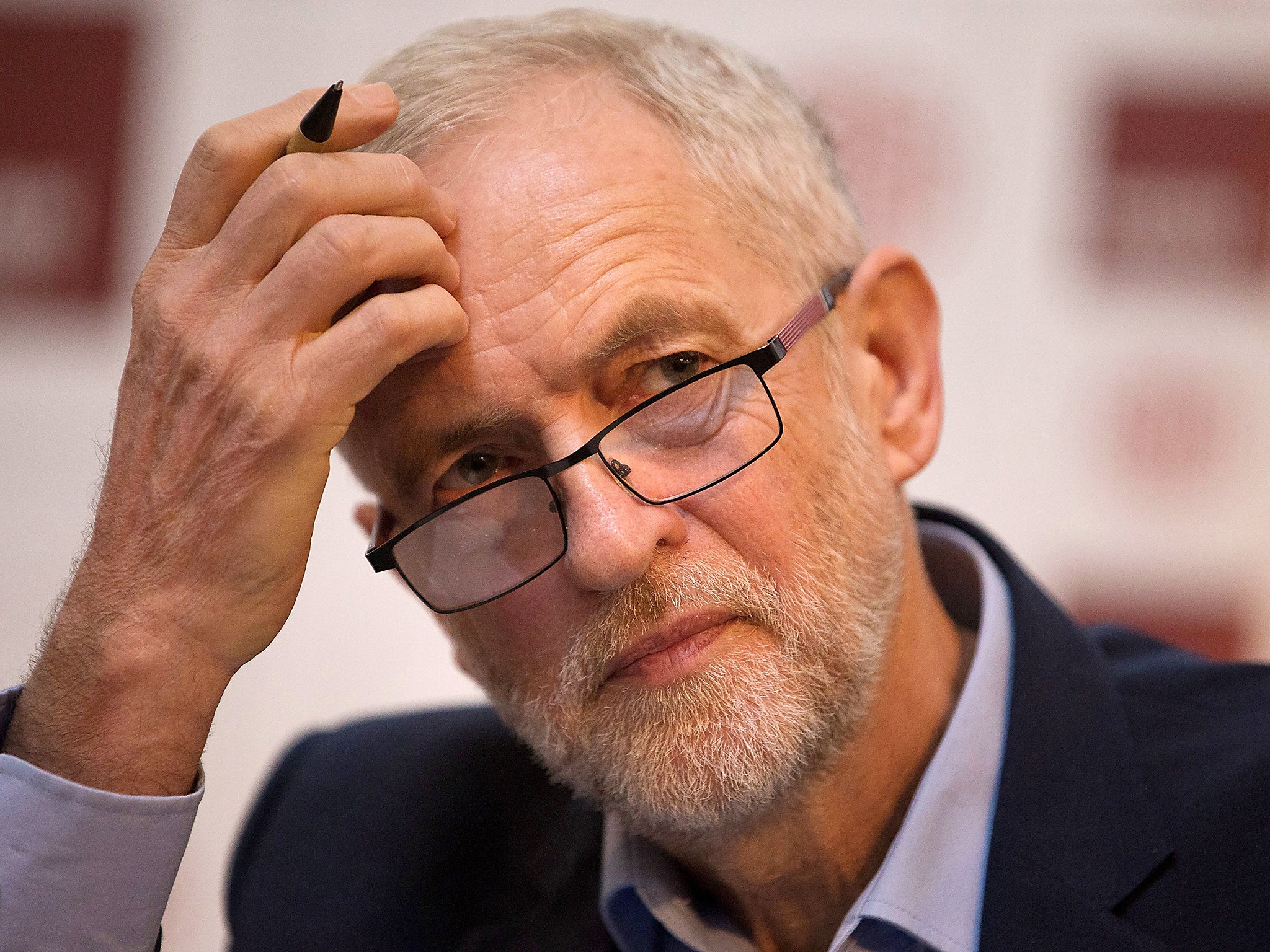Brexit: Labour vows to reject Theresa May's Great Repeal Bill if it hands ministers powers to dump rights
Exclusive: Shadow Brexit Secretary Sir Keir Starmer tells The Independent Labour will fight the Government ‘all the way’

Your support helps us to tell the story
From reproductive rights to climate change to Big Tech, The Independent is on the ground when the story is developing. Whether it's investigating the financials of Elon Musk's pro-Trump PAC or producing our latest documentary, 'The A Word', which shines a light on the American women fighting for reproductive rights, we know how important it is to parse out the facts from the messaging.
At such a critical moment in US history, we need reporters on the ground. Your donation allows us to keep sending journalists to speak to both sides of the story.
The Independent is trusted by Americans across the entire political spectrum. And unlike many other quality news outlets, we choose not to lock Americans out of our reporting and analysis with paywalls. We believe quality journalism should be available to everyone, paid for by those who can afford it.
Your support makes all the difference.Labour will not back a vital piece of Theresa May’s Brexit legislation if it contains sweeping powers allowing ministers to scrap vital workers’ rights, human rights and environmental provisions.
Shadow Brexit Secretary Sir Keir Starmer vowed his party would fight Ms May “all the way” if she tried to use Brexit as an opportunity to adopt the so-called “Henry VIII powers”.
The expected move by the Government would render Parliament almost powerless to stop Tory ministers in post-Brexit Britain from dumping rights previously enshrined in EU law.
In an exclusive interview with The Independent, Sir Keir also revealed how his party would try force the Government to give Parliament more control over Ms May’s Brexit negotiations.
He went on to admit that Labour is still debating just how to respond to the underlying issues raised by the shock vote to quit the EU, and the full implications it has for immigration policy.
The Government has announced a Great Repeal Bill, scrapping the 1972 European Communities Act and incorporating all EU law into British statute, with ministers then able to choose which parts to keep and which to ditch.
But because the terms of Theresa May’s Brexit deal will not be known when the legislation is to be passed this summer, the bill is likely to include a “Henry VIII clause” – named after the all-powerful king – allowing ministers to ditch bits of EU law they do not like with little parliamentary scrutiny.
Sir Keir gave Ms May credit for saying that workplace rights would be protected as the UK takes on existing EU law.
But he went on: “It’s not just workplace rights. There are human rights provisions.
“There are environmental provisions, there are all sorts of provisions that are really important, that will become part of the debate for the Great Repeal Bill.”
Sir Keir said all law taken on by the UK from the EU must be put into primary legislation, so that it required full parliamentary approval to change or abolish.
He added: “It would be wrong for these rights to go into our law and then be capable of being amended or removed by statutory instrument [without full parliamentary approval].

“I think that’s a really important principle that we must fire to the beginning of any discussion on the Great Repeal Bill.”
Asked if Labour would vote against the Bill if it contained Henry VIII powers, he said: “We will fight the Government all the way on this.”
In the House of Commons the Government has a slim majority and may still be able to push through their preferred legislation without Labour support, but in the Lords the Tories are in a minority – setting the stage for a Brexit showdown.
Sir Kier was speaking just days after Ms May had given her historic speech setting out 12 negotiating priorities for Brexit talks. It included a plan to leave the single market and the customs union as it stands, while introducing a new immigration regime.
The Labour frontbencher, tipped as a future leader, faced some disapproval from his own side after saying in the Commons that Ms May’s plan would “fall short of hard Brexit”.
Clarifying his comments, he said it would only fall short of hard Brexit if she achieved her aims, which he described as “a huge if”.
He explained that Ms May’s “full package, including her threat to have this tax haven economy” if EU leaders do not give her what she wants would definitely constitute hard Brexit.
The focus is now moving to the Supreme Court judgement on Tuesday, which is expected to rule that the Government must give Parliament a vote on triggering Article 50 of the Lisbon Treaty, sparking the Brexit process.
The vote is likely to be in March and is contentious for Labour, which has an official line that it will not block Article 50, because to do so would be politically damaging in pro-Brexit northern heartlands, making the party vulnerable to a challenge by Ukip.
But Labour MPs in more pro-Remain seats further south, such as shadow ministers Clive Lewis and Tulip Siddiq, have signalled they may break party line and vote against the triggering of Article 50.
One thing that may prevent the split is if Sir Keir can win concessions from the Government in how Parliament scrutinises Ms May’s Brexit plans.
He said Labour was likely to seek to attach amendments to whatever piece of legislation to trigger Article 50 ministers bring forward.
One amendment would see Labour demand the Government publish the plan, laid out in Ms May’s speech, in a document that can be scrutinised and debated by Parliament, something Downing Street has signalled it does not intend to do.
Sir Keir said: “A formal document like a White Paper would be good, because it would be something against which everything that happens in the next few years can be measured and judged.”
He added: “Setting them out in a speech is not the same as a plan that is put before Parliament. This is really important if there is going to be accountability throughout the two-year period.
“The Prime Minister has been very reluctant to answer questions directly. One of the consequences of not doing her speech in Parliament, of course, is that she was not asked directly what she meant by various things in there.”
Sir Kier said neither he nor other frontbenchers were in discussions with sympathetic Tories to force the issue – also raised in the Commons by ex-Conservative ministers Ken Clarke and Anna Soubry – but he accepted that “it is obvious that discussions are going on” involving some MPs in his and Ms May’s party.
Another potential Labour amendment would seek to set the terms of the vote promised to Parliament on the Prime Minister’s eventual deal.
No 10 has said Britain would still leave the EU, albeit without any deal, if Parliament rejected the agreement Ms May reaches with European leaders.
But Sir Keir said the vote in the Commons and Lords was still important because it meant the Prime Minister would have to consider that she needed to win MPs’ backing when hammering out the deal.
Asked if his party would oppose a Brexit deal they did not like in the vote, he said only: “It has to be a meaningful vote. I don’t want to speculate.
“What I genuinely hope is that the Prime Minister negotiates in accordance with her objectives and achieves the best deal and is able to put it before Parliament. That is what I hope will happen.”
The main issue threatening to complicate Labour’s own response to Brexit is immigration, with Sir Keir on one hand talking up the need to reform rules and a Labour leader on the other who finds dealing with the issue more awkward.

Earlier this month it was briefed that Mr Corbyn would give a speech saying “Labour is not wedded to free movement of people”, only for the speech to be altered when given the next day to include the line, “...but I don’t want that to be misinterpreted, nor do we rule it out”.
It was claimed in some news stories that the speech was changed after an intervention by shadow Home Secretary Diane Abbott, who in some reports Sir Keir has been pitched against in a struggle over Labour’s immigration policy.
Asked to shed light on why the speech was changed, Sir Keir said: “I wasn’t with Jeremy that day, so I’m not in a position to say.
“I have consistently said that the way freedom of movement operates will have to be part of negotiation and will have to change.
“That’s what I said in my Bloomberg speech and that speech was agreed within the party, and I have been very clear about that.”
Was it changed after an intervention from Ms Abbott? “I don’t know,” he said.
He pointed out that both Mr Corbyn and Ms Abbott have said that any deal must be based upon “fair immigration rules and the reasonable management of migration”.
Sir Keir did not mention immigration in his Commons statement relating to Ms May’s Brexit speech. He said this was because he had already been clear that rules had to change “on occasions that are too many to note”.
He did tell The Independent, however: “Of course there is a debate going on about all of these things, including immigration, and you wouldn’t accept it from me if I said otherwise.
“But there is genuine consensus that understanding the referendum is as important as accepting it. Tese debates are going on in the party and they need to pulled together as a future-looking project that will enable the Labour Party to challenge effectively at the next election.”
Join our commenting forum
Join thought-provoking conversations, follow other Independent readers and see their replies
Comments